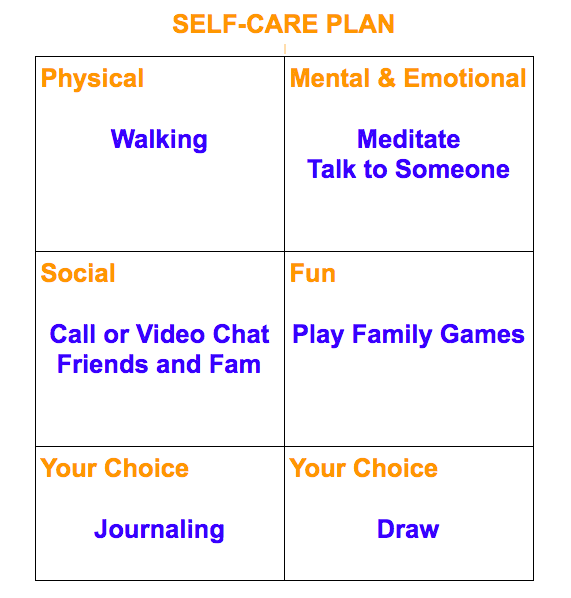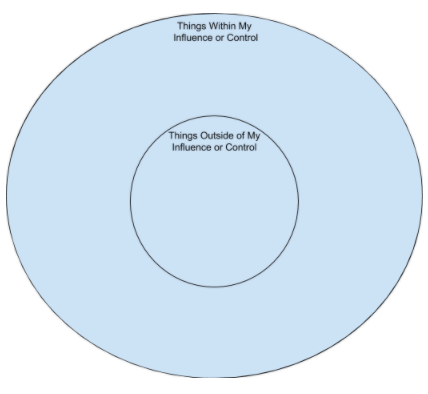Post by Sal Becerra, School Counselor
While there is still much uncertainty concerning the impacts of the unprecedented COVID-19, this pandemic has forced us to adjust to a new normal. Many, like myself, have been forced into confinement in our own homes. Only going out to purchase the essentials and even then using the “Drive-Up” option to minimize the need to walk into a public place. Aspects of our professional lives have had the same impact as we have ventured to work virtually.
Whether it is as a student, parent, teacher, the administrator, many of us have to balance a life of working and being with family all at the same time. Our priorities for school, work, and personal responsibilities have been impacted by this pandemic. For that same reason, it is crucial that we work on self-care and focus on our mental health wellbeing. Finding that balance within this chaos is key. Here are some steps to take to help build your resiliency.
STEP 1: Focus On What You Can Control
When there is uncertainty or things that are beyond our control it causes us to feel stressed and/or anxious. It is extremely important to focus on what we can do in the present moment, even if it’s to pause and breath, or take a mindful walk to recenter ourselves.
Take a moment and think about the things that are out of your control and the things that are within your direct influence. It is crucial to focus on the things we can control in the present moment and take those small steps to feel better. What small steps can you take to minimize the impact of stress/anxiety today?
Take some time and fill out your own What’s In Your Control thinking map (What’s In Our Control).
STEP 2: Practice Self-Compassion
The second step in building resiliency is to practice SELF-COMPASSION. As human beings, we are sometimes our worst critic and something we criticize ourselves, even more, when things become overwhelming or don’t go as planned. Dr. Kristin Neff from the University of Texas at Austin has developed the three parts of Self-Compassion. Here are some ways you can implement it in your own lives:
Steps In Practicing Self-Compassion
| Practice Self-Kindness |
|
| Find that Common in Humanity |
|
| Be Mindful of the situation |
|
Practicing Self-Compassion can help interrupt our inner critic and help us get centered. Take a minute or two each day to practice these. It will help reduce negative thoughts and allow our minds to be in the present moment.
Step 3: Create a Self-Care Plan
The final step in this journey is to develop our Self-Care Plan (Self-Care Plan). This self-care plan serves as a reminder to take care of ourselves physically and mentally every day. These small actions will contribute to making you more resilient. The Self-Care Plan below is an example of what you can do.
 As you look into building your self-care plan think about the following:
As you look into building your self-care plan think about the following:
| Physical | What is one thing that you can do to take care of yourself physically? |
| Mental & Emotional | What is something you can do each day to support your mental and emotional wellbeing? |
| Fun |
What is something you can do for fun? Note: within 5 to 15 minutes of doing something fun, the central nervous system starts calming down. |
| Social | What can you do to stay socially connected with your friends, family and/or significant other? |
Remember that practicing self-care is never a selfish act, it is important that we find that balance in our lives to keep us centered and psychologically healthy. I hope these tools can help you stay resilient and healthy. For more information or for further resources, please contact me at [email protected]
 Graphic Source
Graphic Source

